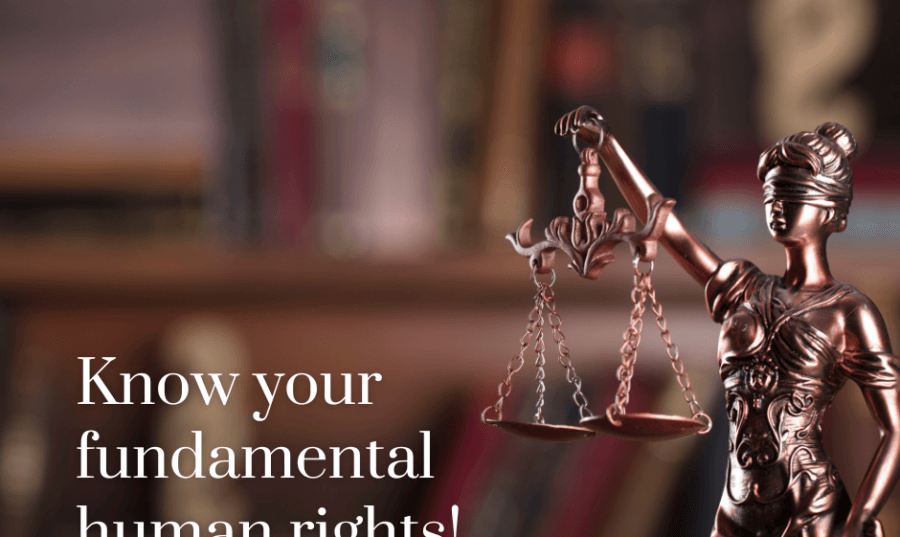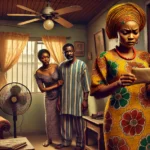The Rise of Online Gender-Based Violence (OGBV) and Its Impact on Nigerian Women

In today’s digital age, technology has amplified our voices, but it also opens the door to a darker side Online Gender-Based Violence (OGBV). This form of violence has become a significant issue, particularly for women and girls. Online abuse isn’t just about hateful comments or trolling — it’s rooted in deep societal issues like gender inequality, patriarchy, and discrimination.
This isn’t just a theoretical problem; it’s something many women across the world, including in Nigeria, are experiencing. A 2020 survey showed that 85% of women globally have faced some form of online violence, with 62% of Nigerians personally knowing someone who’s been targeted. It’s high time we discuss the real impact of OGBV and what can be done to protect women, especially in Nigeria.
What Is Online Gender-Based Violence?
OGBV refers to any gender-based harm inflicted through digital platforms, be it social media, email, or gaming websites. In 2018, the UN defined it as violence committed or exacerbated online, affecting women simply because of their gender. Often, the abusers are people known to the victims. They could be intimate partners, exes, friends, or colleagues — but sometimes they are anonymous trolls hiding behind a screen. While OGBV can happen to anyone with internet access, women in the public eye, like journalists, politicians, and influencers, are especially vulnerable.
Types of Online Gender-Based Violence
OGBV manifests in many ways, and while it may not always result in visible physical harm, its impact can be just as damaging. Some common forms of OGBV include:
- Sexual Harassment Online: This involves unwanted sexual comments, explicit images, or the manipulation of images to create explicit content, often used for blackmail or harassment.
- Revenge Porn: The non-consensual sharing of intimate photos or videos, meant to humiliate or harm the victim.
- Cyberbullying: The use of digital platforms to shame, intimidate, or provoke anger in someone.
- Cyberstalking: This is the repeated online harassment of someone, often involving tracking or monitoring their activities and spreading false information.
- Cyber Flashing: Sending unsolicited explicit images or videos to someone to coerce them into unwanted sexual behavior.
- Trolling: Posting inflammatory content with the intent to upset or discredit someone, particularly public figures.
- Doxxing: Publicly sharing someone’s personal details, like their address or phone number, to cause harm.
- Identity Theft: Stealing someone’s personal information to commit fraud or impersonate them online.
- Hate Speech: Sharing hateful or discriminatory content aimed at inciting violence against women or specific groups.
The Effect of Online Gender-Based Violence on Nigerian Women
OGBV has devastating consequences for women, especially in Nigeria. While some may argue that online violence is less severe than physical harm, the psychological and emotional effects can be overwhelming.
- Psychological/Mental Impact: Women who experience OGBV often face severe anxiety, depression, and feelings of isolation. The trauma can extend beyond mental health, causing physical health problems too.
- Self-Censorship: Many women, fearing further abuse, withdraw from online spaces, stifling their voices and limiting their opportunities. OGBV forces women to hide their true selves, suppressing their ability to contribute freely to society.
- Financial Repercussions: Women targeted by OGBV may face financial losses, either from needing to hire professional services like lawyers or cybersecurity experts or from abandoning their jobs or online businesses due to safety concerns.
Laws Protecting Nigerian Women Against OGBV
The Nigerian government has made some legal strides to combat OGBV, though more work is needed. A few existing laws that help protect women include:
- The 1999 Constitution: Guarantees the right to privacy and freedom from discrimination.
- The Cybercrimes Act (2015): Addresses cyberbullying, online harassment, and other forms of cybercrime.
- The Violence Against Persons Prohibition (VAPP) Act (2015): Protects individuals from emotional abuse, intimidation, and stalking.
- The Nigeria Data Protection Act (2023): Focuses on protecting sensitive personal data from misuse.
- The Criminal and Penal Code Acts: Address offenses like false news publication and obscene communications that may harm others online.
What More Needs to Be Done?
Despite these laws, Nigerian women are still vulnerable to OGBV, and more needs to be done:
- Action from Social Media Platforms: Social media companies need to do more to protect women from abuse. A study found that 97% of accounts responsible for misogynistic abuse remained active even after being reported. These platforms must take stronger action to combat abuse and hold perpetrators accountable.
- Law Reform and Enforcement: As technology evolves, laws must keep up. The Nigerian government needs to ensure existing laws like the Cyber Crimes Act and the VAPP Act are properly enforced and updated to address emerging threats.
- Raising Awareness of Protection Mechanisms: Many women in Nigeria aren’t aware of the tools available to report online abuse. Advocacy groups, tech companies, and the government need to educate women about their rights and how to report violations.
- More Research on OGBV’s Impact: There’s a need for more research into how OGBV affects Nigerian women specifically. This research will help social media platforms, government agencies, and NGOs better address the issue.
- Creating Counter-Narratives: Misogynistic narratives often dominate both online spaces and societal views. We need to create counter-narratives that promote gender equality and respect for women, challenging the harmful content that fuels OGBV.
Conclusion
OGBV is a serious issue affecting women worldwide, especially in Nigeria, where the digital space has become a battleground for women’s rights. Though there are legal frameworks in place, stronger enforcement, better awareness, and more research are necessary to protect women and girls from online abuse. The government, social media companies, and civil society must work together to ensure a safer digital space for everyone. By taking action, we can help Nigerian women live and thrive online, without fear of harassment or violence.
With ongoing efforts to improve legal protections and create safer online spaces, we can bring Nigeria closer to achieving true gender equality in both the digital and real world.









Well done Shari, for raising more awareness about OGBV. This is both informative and thought-provoking.
It’s terrible that one can’t really enjoy security in their online space.
It’s actually really sad that this exists and I hope we can all work towards a safer environment, both online and offline for everyone. Thank you Seyi for reading and leaving a comment!